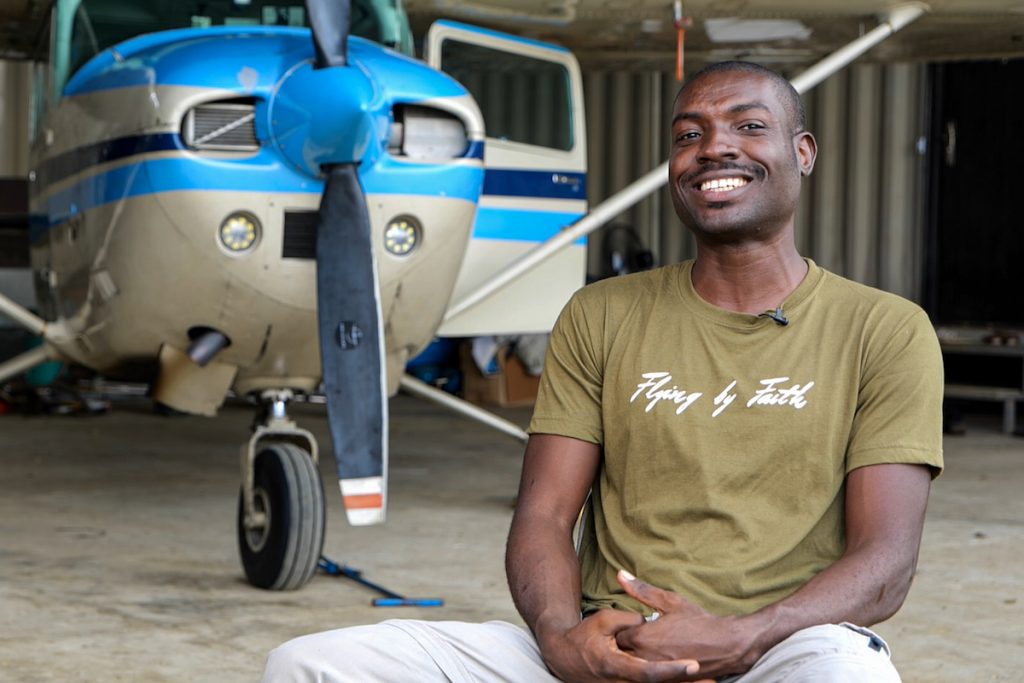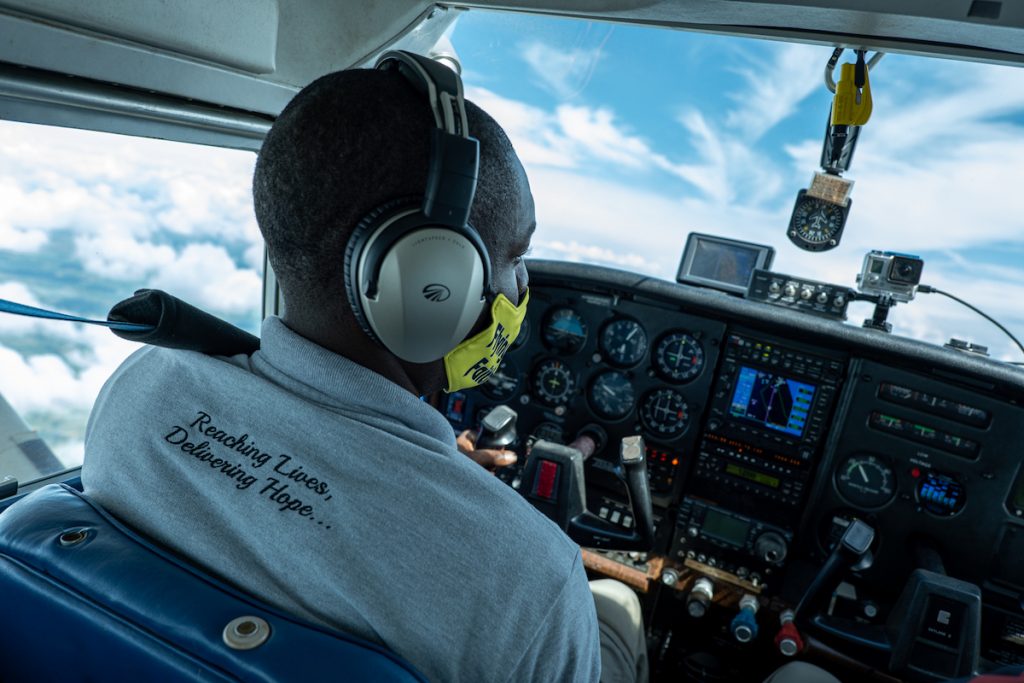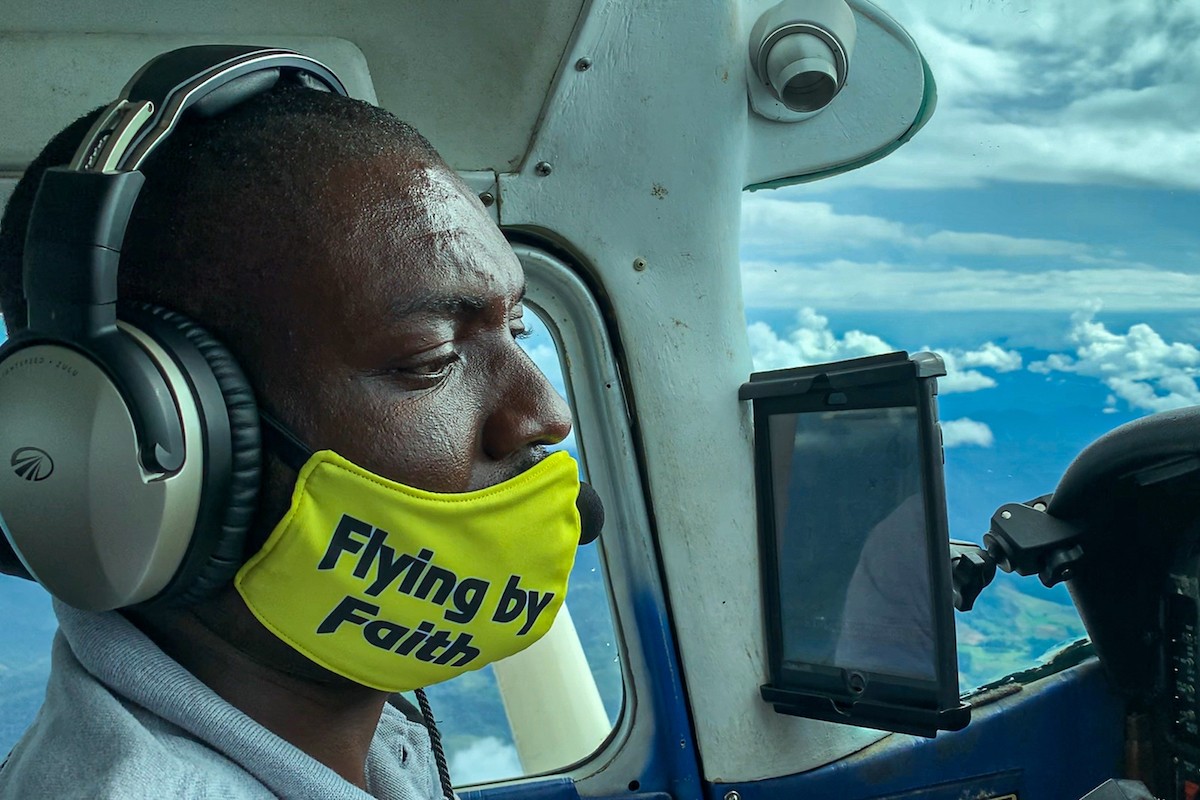The ground was wet from last night’s rain and dense vertical clouds covered the sky.
When a pocket of blue emerged, pilot Davin Bennett switched on the engine of his four-seater Cessna 182 plane.
He was flying that early December morning from Cabarroguis town in the northern Philippine province of Quirino with Babylin Malacasta, an indigenous woman in her 30s, and her baby.
Malacasta had to go home to Palanan town in Isabela province before the implementation of another lockdown due to the rising number of coronavirus cases in the city of Santiago where she stayed for weeks to seek medical attention for her child.
Palanan is one of four remote and isolated coastal towns of the province in the eastern seaboard of the country, separated from the rest of the region by the Sierra Madre mountains.
There are no roads that connect the town to the rest of the province. It can be only reached by a 12-hour boat ride from Santiago.
The plane took off smoothly, but northeasterly winds made the climb a little rough.
After passing through scattered cloud formations, the beauty of the forest region emerged from the horizon.
That day, Bennett brought the mother and child home safely in only about an hour. “Another mission accomplished,” he said.
The 35-year-old Jamaican is a missionary pilot of the Philippine Adventist Medical Aviation Services, (PAMAS) an independent ministry that supports the mission of the Seventh-day Adventist Church.
Since its establishment in 2007, the organization has been providing medical air support in several areas in the province of Palawan, parts of the main island of Luzon, and Mindanao in the south.
Bennett is one of PAMAS’ five pilots who operate one R44 II helicopter and four airplanes, including Bennett’s Cessna 172.
Every year, the missionary pilots log more than 700 flight hours, with 80 percent of the flights being medical evacuation cases.
PAMAS is the only air medical evacuation service in the country that does not charge fees. It operates through donations and is staffed by volunteers.

Flying in the time of pandemic
When the Philippine government imposed a lockdown in March 2020 to quell the spread of the coronavirus disease, public transport was shut down.
Travel restrictions became a challenge in areas that have no medical professionals or specialists.
The Philippines has only six doctors for every 10,000 people, one of the lowest ratios in Southeast Asia, according to the World Health Organization.
With the shortage, seven out of 10 Filipinos die without seeing a healthcare professional.
The need for medical evacuation service, especially for people in remote and isolated areas in the time of the pandemic, was high.
Bennett was the only one who flew over the remote province of Quirino during the first few months of the pandemic.
“I was the only one flying over Luzon,” he said. “There’s no one else on the radio,” he said, adding that it was a “missionary pilot flying a missionary plane.”
Since March, Bennett made more than 530 hours of flight time, serviced at least 200 patients, and transported about 340 stranded individuals.
Every time he flies to service people with medical needs, he sees how the “pandemic is a nightmare for the average person.”
“I can feel their struggle and burden… sometimes the hopelessness,” he said.
However, each time Bennett makes the final approach to his destination he would notice “the faces of the patients and the family members or a stranded individual change.”
“As soon as the plane touches the ground, I see smiles on their faces, smiles that portray hope, happiness, and gratitude,” he said.
Bennett told LiCAS.news that every time he flies with patients or stranded people “I am reminded of my purpose as a Christian.”
“As a missionary, I’m really humbled to see that God gave me the opportunity to be of service,” he said.
Flying with faith
It took seven years for Bennett to become a missionary pilot.
He first came to the Philippines as a medical missionary for his Church in 2011 after finishing missionary training in the United States for almost two years.
“We cater to lifestyle diseases,” he said, adding that those who undergo the training are not doctors.
“The strength of the training is to educate people how to take care of themselves,” he said.
After the training, Bennett had to put all he learned into practice.
He worked in different areas in the northern Philippines as a medical missionary and in 2013 he was invited to work in Palawan.
It took him, however, seven years to become a missionary pilot.
In 2015, Bennett and his wife, Irene, a 37-year-old music instructor and also a missionary, went to the United States for his pilot license.
“We moved over 34 different times in seven different states,” he recalled.
Bennett’s training cost about a thousand dollars per week. The whole thing cost about US$22,000.
“It was a lot challenging. There was one point, it was stretching both my wife and me,” he recalled.
“Our faith was maxed out, and I remember we were in a rented home, and we were just butting heads with each other,” he said.
One morning, Bennett talked to Irene.
“We either quit now and go back to the Philippines or you can go back to your job as a teacher and I go back to maybe volunteering more as a pastor,” he recalled saying.

Bennett was ready to give up his dream to be a missionary pilot, but Irene encouraged him to continue.
“We’ve come so far, now we know what it entails, let’s keep going,” his wife said.
The couple decided to keep on working on Bennett’s dream even if it meant collecting recyclables and selling them to raise funds.
“It’s easy to complain about what we don’t have, and dream of what we want, but unless we are willing to do what we can to help ourselves, some dreams will only be a nightmare,” he said.
Every time Bennett flies a mission these days, he would look back and remind himself that “it was all worth it.”
“A lot of people prayed for me, encouraged me, and supported me, that’s how I made it across the finish line. Now, it is time to pay it forward,” he said.
Last month, Bennett was informed that his plane needs a new engine that would cost at least US$15,000.
Again, he has to reach out to people for help.
Every day, Bennett looks up the sky and when sees dark clouds, he would wait and pray until a ray of light emerges.
“We can’t quit now. We have gone a long way,” he said. “I’m sure there are a lot of people out there who will help us, like what others did before.”







